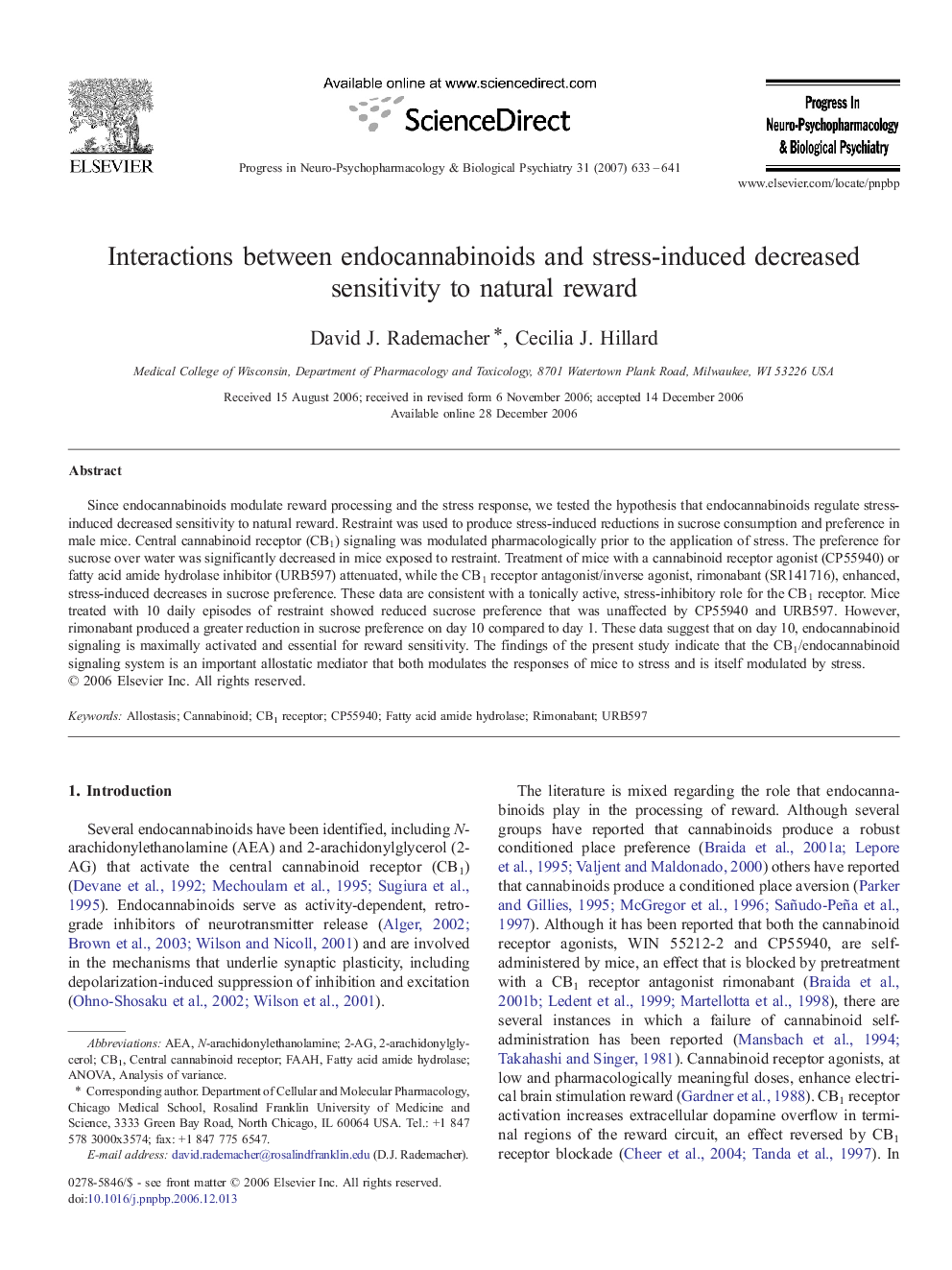| Article ID | Journal | Published Year | Pages | File Type |
|---|---|---|---|---|
| 2566319 | Progress in Neuro-Psychopharmacology and Biological Psychiatry | 2007 | 9 Pages |
Since endocannabinoids modulate reward processing and the stress response, we tested the hypothesis that endocannabinoids regulate stress-induced decreased sensitivity to natural reward. Restraint was used to produce stress-induced reductions in sucrose consumption and preference in male mice. Central cannabinoid receptor (CB1) signaling was modulated pharmacologically prior to the application of stress. The preference for sucrose over water was significantly decreased in mice exposed to restraint. Treatment of mice with a cannabinoid receptor agonist (CP55940) or fatty acid amide hydrolase inhibitor (URB597) attenuated, while the CB1 receptor antagonist/inverse agonist, rimonabant (SR141716), enhanced, stress-induced decreases in sucrose preference. These data are consistent with a tonically active, stress-inhibitory role for the CB1 receptor. Mice treated with 10 daily episodes of restraint showed reduced sucrose preference that was unaffected by CP55940 and URB597. However, rimonabant produced a greater reduction in sucrose preference on day 10 compared to day 1. These data suggest that on day 10, endocannabinoid signaling is maximally activated and essential for reward sensitivity. The findings of the present study indicate that the CB1/endocannabinoid signaling system is an important allostatic mediator that both modulates the responses of mice to stress and is itself modulated by stress.
